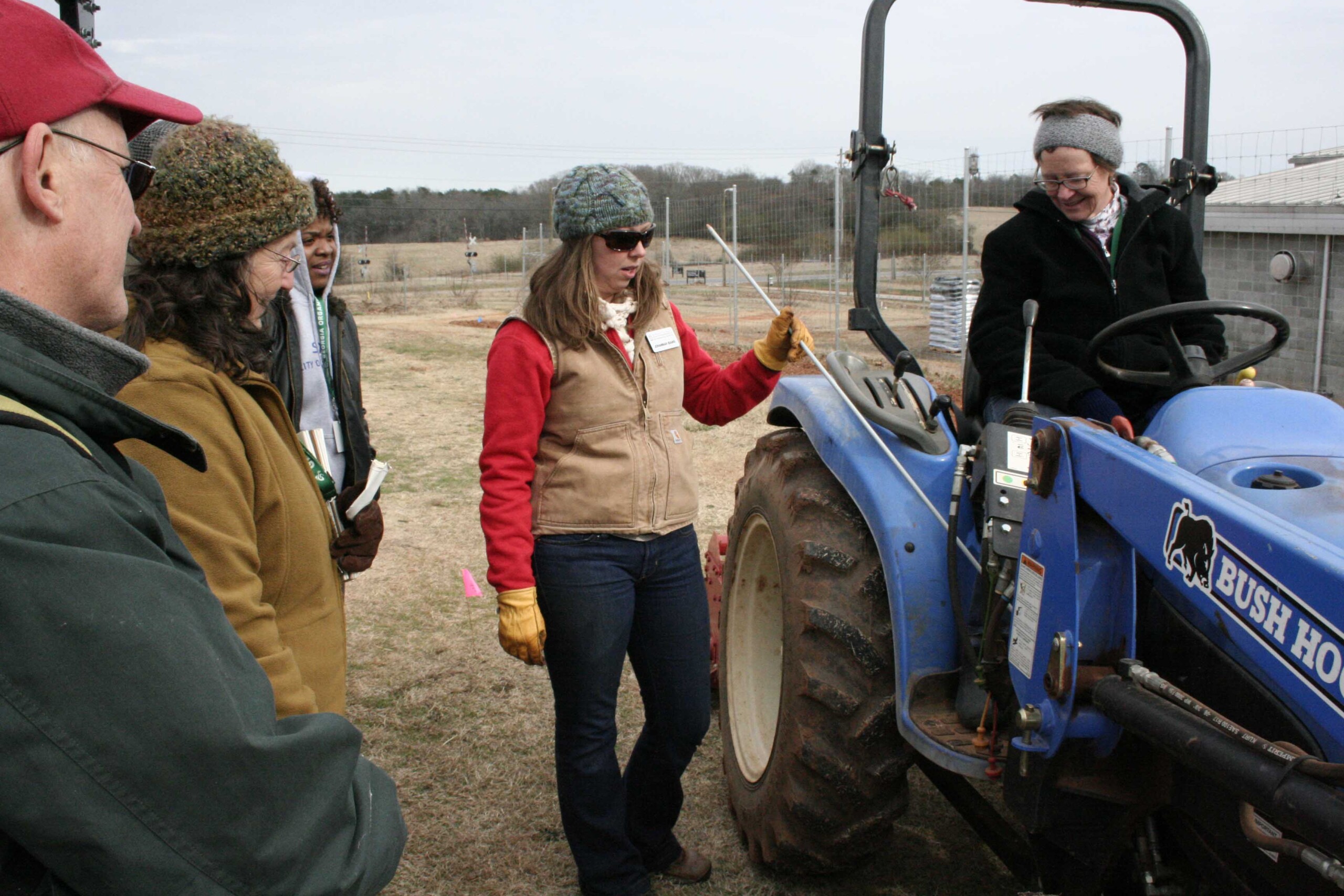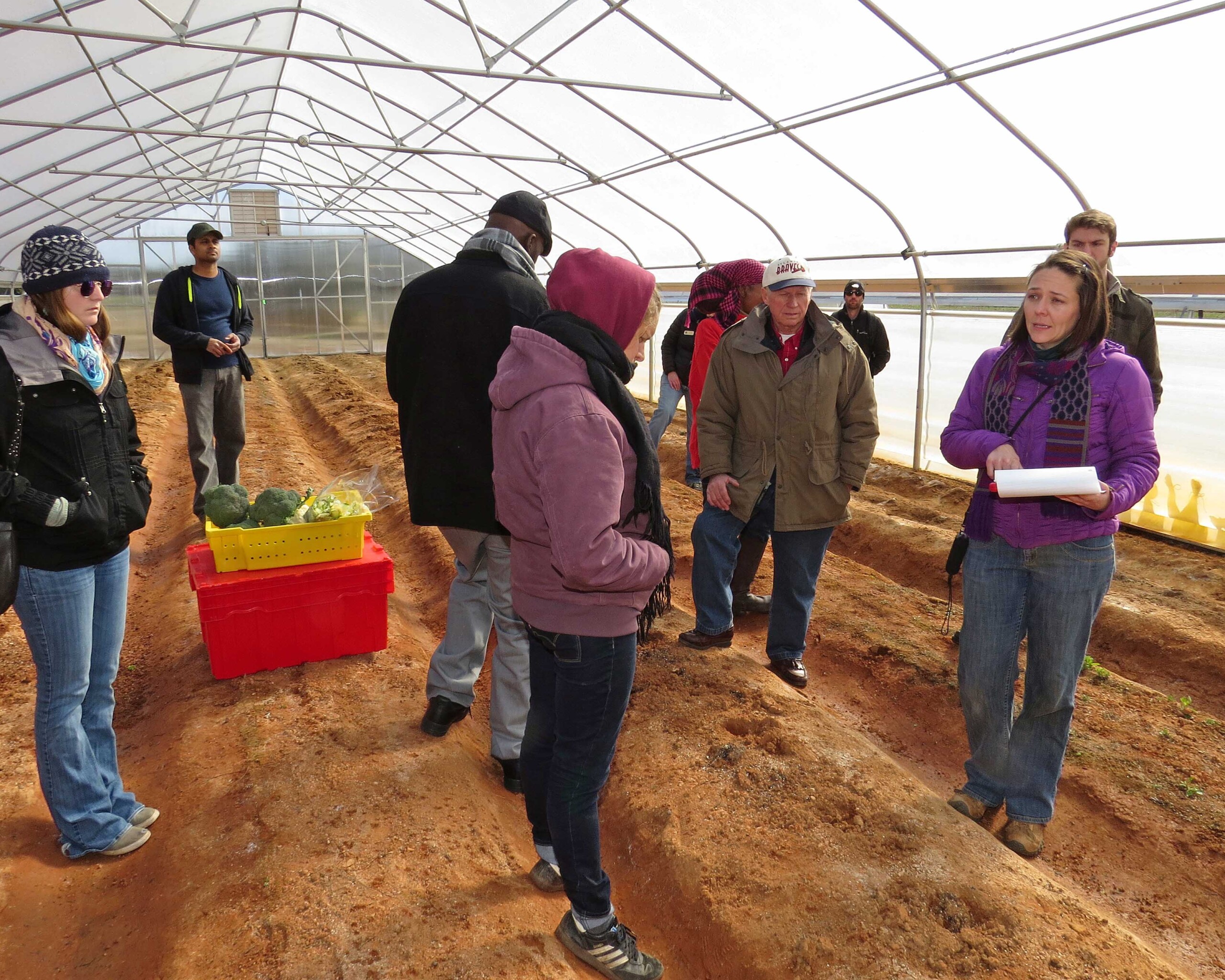Pioneers in sustainable agriculture, backyard gardeners and urban homesteaders gathered in Athens this month to share knowledge gathered over years of working the land and to learn new skills from researchers at the University of Georgia.
From soil health research to breeding programs for organically produced crops, faculty and staff at UGA have worked to improve the sustainability and efficiency of organic farms in Georgia.
“Many people don’t realize how much work we have going on in sustainable agriculture,” said Julia Gaskin, sustainable agriculture coordinator for the UGA College of Agricultural and Environmental Sciences (CAES) and winner of Georgia Organics’ 2015 Land Steward Award.
“Having the Georgia Organics conference here allows us to highlight all the research and Extension work we have in this area,” she said.
During the two-day conference, UGA faculty hosted farm tours at UGArden, the organic farm at Durham Horticulture Farm and at the J. Phil Campbell Sr. Research and Education Center—UGA’s hub for sustainable agriculture research and public outreach.
They also hosted hands-on workshops.
- Lawton Stewart, assistant professor of animal and dairy science, and Dennis Hancock, associate professor of crop and soil sciences, taught an introductory workshop on sustainable grazing.
- David Berle, associate professor of horticulture, and JoHannah Biang, UGArden farm manager, taught a class of beginning farmers and gardeners how to build raised beds and how to repair and use small farm machinery.
- Peter Hartel, retired professor of crop and soil sciences, and Elizabeth Little, assistant professor in plant pathology, helped farmers inspect soil from their farms using microscopes and interpret findings in terms of soil health.
- Suzanne Stone, a graduate student in horticulture, and Little, assistant professor of plant pathology, helped lead a discussion on the need for better crop varieties for organic producers.
- Gaskin and George Boyhan, professor of horticulture, gave a workshop on selecting cover crops and how to maximize their benefit.
- Judy Harrison, professor of foods and nutrition in the College of Family and Consumer Sciences, gave updated conference attendees on the Food Safety and Modernization Act and how it affects produce coming from small farms.
- Bob Waldorf, an Extension coordinator in Banks County, gave an update on UGA’s Master Goat Farmer program.
In addition to the tours and workshops, 12 UGA graduate students presented posters on their research at the conference.
“You can’t have a conversation about agriculture in Georgia without involving the University of Georgia,” said Alice Rolls, executive director of Georgia Organics. “Agriculture and UGA are synonymous here, and growers of all sizes and types depend on UGA’s research and leadership.”
“Without UGA, Georgia Organics’ work and farming in general would be so much more difficult, and that’s why we are grateful to count the UGA College of Agricultural and Environmental Sciences as an ally in our work to put more Georgia food on Georgia tables,” Rolls added.
This most recent Georgia Organics conference is just the latest collaboration between Georgia Organics and the faculty of CAES and UGA Extension. In addition to working on numerous educational programs over the years, Georgia Organics recently collaborated with UGA and several other agricultural advocacy groups to establish a Beginning Farmers and Ranchers Development Program in Georgia.
With a $652,000 grant from the U.S. Department of Agriculture National Institute of Food and Agriculture (NIFA), UGA Extension, Georgia Organics, UGA Small Business Development Center, Fort Valley State University and AgSouth Farm Credit will develop an in-person and distance-training program for beginning farmers.
The program will focus on helping these farmers build sustainable businesses as well as sustainable farms.
To learn more about sustainable farming research and outreach at UGA, visit www.SustainAgGA.org.





